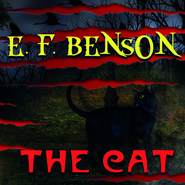По всем вопросам обращайтесь на: info@litportal.ru
(©) 2003-2025.
✖
Mammon and Co.
Настройки чтения
Размер шрифта
Высота строк
Поля
Lily sighed.
"Yes, and poor Kit was waiting for us all here. She was quite alone, mother, and had an awful crise des nerves over it."
"I should have thought she was the last person in the world to be nervous," said Mrs. Murchison.
"Oh, crise des nerves is not nervousness," said Lily; "it is being strung up, and run down, and excited."
"My mother," remarked Mrs. Murchison, "was of a very nervous temperament. I have seen her on the coldest days suddenly empty a carafe of water over the fire, for fear of the house catching. And evenings she would sometimes blow out the candle for the same reason."
Toby giggled explosively.
"And the cruel part was," continued Mrs. Murchison, "that throughout life she was afraid of the dark, in which the blowing out of the candles naturally left her. So, between her dread of a conflagration and her terror of the dark, it was out of the fireplace into the fire."
"Frying-pan, mother," said Lily.
"Maybe, dear; I thought it was fireplace. But it's six of one and half a dozen of another. Poor Mommer! she had a very nervous and excitable temperament, with sudden bursts of anger. At such times she would take out her false teeth – she suffered from early decay – and dash them to the ground, though it meant slops till they got repaired. Most excitable she was."
"Very trying," said Toby rather tremulously.
"No, we didn't find her trying, Toby," said this excellent lady. "We were very fond of her. Poor dear Mommer!"
She sighed heavily, with memory-dim eyes, and Toby's laughter died in his mouth. Mrs. Murchison got up.
"Well, I shall put on my hat," she said, "and come out with you both. I brought an evening paper down with me, but there is nothing in it, except that there has been a terrible tomato in the West Indies, destroying five villages – tornado, I should say – and great loss of life."
She went out of the room to fetch her hat, and Lily and Toby were left alone. Toby looked furtively up, wondering what he should meet in Lily's eye. Her face, like his, was struggling for gravity, and both shook with hardly-suppressed laughter. Neither could speak, and they turned feebly away from each other, Toby leaning with trembling shoulder on the mantelpiece, and Lily biting her lip as she looked helplessly out over lawn and river. Now and then there would come from one or other a sobbing breath, and neither dared look round. Once Lily half turned towards her husband, to find him half turned towards her with a crimson strangling face, and both looked hastily away again. The plight was desperate, and after a moment Lily said, in a choking, baritone voice:
"Toby, stop laughing."
There was no answer, and she gave him another moment for recuperation. Out of the corner of her eye she saw him wiping away the moisture of laughter. Then with a violent effort he subdued the muscles round his mouth.
"She's an old darling," he said; "but, Lily, I shouldn't have liked your grandmother."
Lily heaved a long sigh, herself again.
"Toby, you behaved very well," she said, "and mother is an old darling. Come, we'll go out."
Mrs. Murchison took her cheerful presence away after three days, as she was sailing to America almost immediately, and the two were alone for the next week. Spring had definitely come, and day after golden day ran its course. Life, eternally renewed with the year, had burst from its winter chrysalis, and stood poised a moment with quivering, expanding wings before launching itself into the half-circle of summer months. Everywhere, on field and tree, the effervescence of green and growing things foamed like some exquisite froth. One morning they would rise to see that the green buds on the limes had split, shedding their red sheaths; on another, the elms were in sudden tiny leaf; on another, the mesh of new foliage round the willows of the water's edge would make a delighted wonder for them. The meadows were scarce starred with pink-edged daisies when the buttercups sowed a sunshine on the fields, and in cool, damp places yellow-eyed forget-me-nots reflected the pale blue they gazed at so steadfastly. Toby and his wife would spend long, lazy mornings in the punt or drive about the deep-banked, primrosed lanes – he all tenderness and solicitude for her, she happier than she had known it was given to mankind to be. They talked but little; to both it seemed that their joy lay beyond the region of words.
On the evening of one such day they were strolling about the garden as dusk fell. Birds called in the thickets and shrubs, now and then a rising fish broke the mirror of the river, and each moment the smell of the earth, as the dew fell, grew more fragrant.
"I wish we were going to stay here a long time," said Lily, her arm in his; "but we must go up to London when Parliament meets after the Easter holidays. The M.P.! Good gracious, Toby, to think that the welfare of your country depends upon a handful of people of whom you are one!"
"Parliament may go hang," said Toby, "and Jack will be delighted to let us stay here just as long as you like."
"I am sure of it, but I don't like. What do you suppose I wanted you to get into Parliament for, if you were not going near the House?"
"Never could guess," said Toby. "It's much more important that you should stop here if you want to."
"Don't be foolish – but, oh, Toby, when my time comes let me come down here again. It was here we were engaged; let it be here you take your first-born in your arms. I do want that."
She turned to him with the light of certain motherhood in her eyes, a thing so wonderful that the souls of all men are incomplete until they have seen it, and her beauty and her love for him made him bow his head in awe. His wholesome humble soul was lost in an amazement of love and worship.
"It shall be so, Toby?" she asked, with a woman's delight in learning how unnecessary that question was. "Will my lord grant the request of his handmaiden?"
"Ah, don't," he said suddenly. "Don't say that, even in jest."
"Then will you, Toby?" she asked.
"If my queen wills it," said he.
"Nor must you say that, even in jest," she said.
"I don't; I say it in earnest – in deadly earnest. It is the truest thing in the world."
"In the world? Oh, Toby, a big place! Then that is settled."
She took his arm again, and they strolled slowly over the short velvet of the grass.
"Toby, there is another thing I want," she said after a moment.
"It is yours – you know that."
"I'm glad of it, then, because I don't think you will like it. It is this: I want you to see Lord Comber, and just shake hands with him."
Toby stopped.
"I can't," he said – "I simply can't."
"Think over it. You see, Toby, it is like this: you are part of me, and before this wonderful thing that is coming comes, I want to be 'all square' with everybody in the world. That's one of your silly golf expressions, so you'll understand it. And I can't be while you are not. Don't misunderstand me; it isn't that I don't feel as you do about him, and if I had been you and knocked him down as you did, I think I should have kicked him as he lay on the pavement. But now it is over."
"Lily, you don't know what you ask," said Toby. "If I had any reason to believe the man was sorry, that he had even any idea what a vile worm he is, it would be different. No doubt he had a bad time that day, for, as I told you, his tie was no better tied than mine; but having a bad time is not the same as being sorry, is it?"
"No," said Lily thoughtfully; "but whether he's sorry or not is not our concern; it doesn't affect what we ought to feel. He was vile; if he had not been, there would be nothing to forgive. Besides, you knocked him down. People ought to shake hands after they have fought; and I want you to."
"That is the best argument you have given me yet," said Toby.
"I don't want it to be an argument at all; I don't want my wish to be any reason at all why you should do it. You must do it because you agree with me."
"But I don't," said Toby.
"Well, tell me when you would shake hands with him," she said. "Would you this day fifty years?"
"No," said Toby.
"Would you if he was dying, or if you were?"
"I think I should; yes, I should."

















